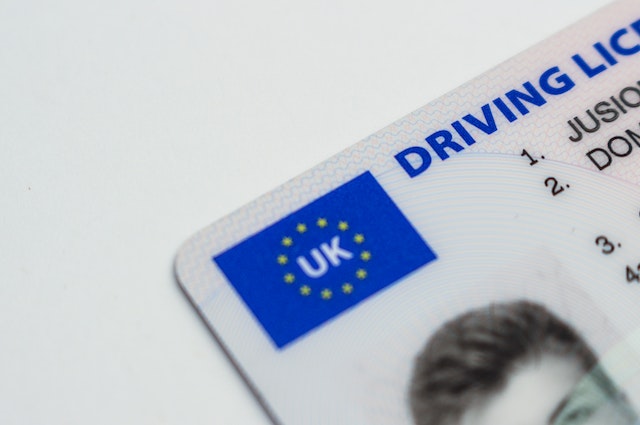Cybersecurity protects devices and data against cyberattacks and online scams while helping keep regulations compliant.
An attempted cyberattack could compromise employees’ privacy and cause significant financial losses for an organization, as well as damage its reputation and cause irreparable reputational harm.
Protects Your Data
Personal data has skyrocketed in value in recent years. Businesses rely heavily on it as an asset; but cyber criminals exploit this precious commodity by stealing personal information for use in extortion or fraud schemes. Without adequate cybersecurity systems in place, data breaches can have devastating results; with proper systems in place however, security breaches and other forms of cyber crime become much simpler to prevent.
Cybersecurity not only safeguards personal data, but it is also invaluable in protecting companies and organizations against potential cyberattacks that could compromise business operations or customer trust. This is particularly relevant for firms handling sensitive information like banks or medical practices.
With the rise of remote work models, it has never been more essential for companies to ensure data protection when employees access company files from various locations and use personal devices to do their work. A data breach can have severe repercussions for a business’s reputation and without proper security in place it’s easy for attackers to gain entry to private information or confidential documents – without such programs it becomes much harder to prevent attacks and protect businesses against potential harm.
Cybersecurity helps keep your home Wi-Fi and personal devices protected from hackers, as well as protects computers from being tracked or hijacked, as well as safeguard your family against online predators. Cybersecurity should be part of everyone’s internet usage regimen; therefore educating family members on cyber risks and how they can avoid potential dangers is also critical; an automated security compliance provider such as Sprinto can be utilized as an additional layer of defense.
Prevents Identity Theft

Cybersecurity provides protection from all manner of cyberattacks, from ransomware to phishing scams. It also helps with data loss prevention and recovery times in case of breaches; an essential necessity for businesses and individuals that frequently access the internet.
Cyberattacks have increased both in quantity and sophistication over time. As more data is stored online, hackers find it easier to gain entry. A data breach can result in financial losses, customer trust issues or even bankruptcy for some companies.
Cybercriminals often target non-perishable information that will prove valuable for them, including date of birth, social security numbers, names and any other details that remain static throughout one’s lifetime. Once cyber criminals gain this data they can use it to commit various types of fraud such as identity theft. To counteract that, many countries have recently invested in healthcare cybersecurity services to protect more people from such scams. Cybersecurity helps combat such attacks by encrypting data, installing firewalls and training employees to recognize red flags or report suspicious activity immediately.
Cybersecurity also protects against viruses that could compromise computer systems and cause productivity losses for companies, which can occur when employees click on malicious links or download malware. Virus scanning, enhanced firewalls, and automatic backup systems help companies remain resilient against such attacks. Organizations using performance monitoring also benefit by being able to manage system performance on an hour-by-hour basis and minimize downtime, helping them comply with regulatory bodies and avoid fines or penalties due to security breaches, while having the confidence that both their personal and business data is secure; in turn this ensures daily goals, strategies, projects are completed on schedule without disruptions and delays that might otherwise negatively affect profitability.
Prevents Phishing Scams
Cybersecurity measures protect businesses against hackers who aim to access personal data or steal it through cyber attacks such as ransomware, phishing, spyware and others that seek to compromise a company’s systems – with serious repercussions for both employees and customers. HIPAA, PCI DSS and GDPR all require companies to meet certain strict standards to protect customer personal information and prevent attacks; failure to do so incurs heavy fines.
No matter their size or industry, all businesses can become targets of cyberattacks that have devastating effects. A successful attack can instil doubt among customers and harm a business’s reputation; plus it could cost millions of dollars in lost revenues and recovery expenses to recover from an attack.
Recent data breaches at American colleges resulted in hackers charging thousands of dollars on students’ credit cards, forcing them to spend months rebuilding it at great expense. Cybersecurity provides an effective solution against such attacks and protects information.
An effective cyber security solution should include anti-spam, content filtering and wireless security to provide comprehensive digital protection and minimize breaches. Furthermore, uptime guarantees should be offered through vulnerability management as well as backup, failover and recovery strategies to guarantee business continuity and safeguard data integrity.
As data breaches become more frequent, their importance for businesses has grown steadily. A cyberattack can have devastating repercussions for any organization – loss of customer confidence, fines and bankruptcy can result from such attacks; by investing in a robust cyber security program with professional training services they can avoid such events and protect themselves financially from their devastating effects.
Prevents Viruses
Cybersecurity helps safeguard computer systems, devices, data files and confidential information against viruses. Furthermore, cybersecurity helps you avoid online scams, comply with regulations and maintain an excellent reputation – as well as quickly recovering from cyber attacks quickly and efficiently.
Cyber attacks are frequently launched by malicious hackers who gain access to personal and company data, exploiting it in order to steal money, cause damage and disrupt operations. Therefore, having effective cybersecurity solutions in place to thwart these types of attacks is vitally important.
Viruses are an increasingly prevalent method of hacking, spreading through emails, documents and social media sites. Once inside, viruses can damage or delete files, slow down your system and log keystrokes for unauthorised access to personal information – creating financial issues for both businesses and individuals alike. Cybersecurity programs that detect viruses may help shield from such attacks by blocking entryways into systems.
By investing in strong cybersecurity protection for their business, companies can avoid major setbacks that threaten future recommendations, ventures and expansion plans. Strengthened authentication ensures all systems are functioning as intended – helping prevent sensitive information being leaked out as well as increasing productivity while decreasing downtime.
Cyber security programs can also assist businesses in avoiding fines and penalties from regulators, which can have serious repercussions for both bottom lines and reputations. Cybersecurity programs help protect businesses against these penalties by ensuring compliance with regulations while safeguarding customer information.
Most of a business’s value resides in its intangible assets, such as intellectual property, business strategy, market insight and IT systems. A cyberattack could easily destroy these valuable resources and cause a substantial financial loss to your organization – this is why investing in cyber security protection will protect against attacks while helping retain customers and ensure customer retention.
Prevents Fraud

An effective cybersecurity program can protect a business from fraud. By restricting scammers’ access to sensitive data and systems, cybersecurity can protect employees and customers from scammers while shielding it from financial loss due to identity or credit card theft. To best secure their business against fraud, businesses should form a comprehensive strategy with cyber security experts; this involves identifying risks and creating protocols to manage them before training employees to recognize suspicious activities within their operations.
Attacks against businesses can cost them money, customers and reputation. Hackers can even disrupt systems to prevent staff from accessing tools needed for work – often leaving companies shell-shocked to recover financially after such breaches have taken place. On average, companies spend an estimated 2.9 million in recoveries costs alone due to breaches.
Cybersecurity has become an essential element of modern businesses. It helps build trust with customers, ensure compliance, foster innovation, and set themselves apart from competitors. Cybersecurity benefits also include protecting privacy against identity theft, phishing scams, viruses and malware threats – and potentially helping reduce data breach costs that save businesses money in the process.
As technology and the internet evolve, so too do business’ cybersecurity needs. Smart leaders recognize this trend and prioritize cybersecurity to prevent breaches or cyberattacks that could compromise their brand and damage customer retention rates or cause lasting reputational harm to the organization. By creating a comprehensive cybersecurity program for their company, successful implementation could increase customer retention while protecting against costly attacks that could compromise reputation – it may make the difference between suffering a minor setback and ultimately having to close shop completely.

